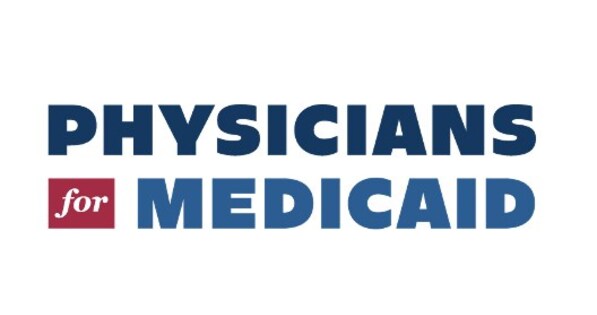The House Budget Reconciliation bill will cause at least 7.8 million Medicaid enrollees to lose their health care coverage.
SACRAMENTO, Calif., June 6, 2025 /PRNewswire/ — Just days ahead of an expected Senate vote on H.R. 1, 46 state medical associations, as part of Physicians for Medicaid have sent a letter to the United States Senate urging them to reject the dangerous cuts to Medicaid proposed in H.R. 1 that will cause millions of patients to lose coverage and even more to lose access to care – children, pregnant women, seniors, veterans, the disabled and working families. Statewide hospital associations have also weighed in, as proposed cuts impact all providers, including physicians and hospitals.
The bill, which includes $200 billion in cuts to the existing and longstanding provider taxes, would have a catastrophic effect on state budgets and the country’s entire health care delivery system and would impact 49 state Medicaid programs.
Provider taxes have been authorized under federal law, approved by both Republican and Democratic administrations, and affirmed by state legislatures in 49 states for decades. They are a legitimate financing mechanism used by states in partnership with the federal government to fund essential health services and have kept rural hospitals, maternity wards, nursing homes, and physician practices open.
The bill also imposes damaging changes to federal student loan programs making it harder for students to pursue medical careers at a time of critical physician shortages. We urge the Senate to pursue more balanced solutions that expand the physician workforce and preserve Medicaid for our patients.
“If these provider tax cuts are enacted, it will create significant gaps in State budgets, forcing states to raise taxes, or reduce benefits, coverage, and provider payments. These reductions will lead to even more crowding of emergency departments and as the uncompensated care burdens grow from patients losing coverage, many rural hospitals, nursing homes, and community physician practices will be forced to close to all patients,” the letter says.
There are three main provisions in H.R. 1 (as passed by the House of Representatives on May 22, 2025) that will drastically limit or eliminate existing provider taxes nationwide. These provisions below apply to all provider taxes, including hospitals, nursing homes, managed care organizations, and other provider categories.
- Moratorium on New or Increased Provider Taxes (SEC. 44132) – Under the provisions of H.R. 1, none of these taxes could be increased after the passage and enactment of the law nor can any new taxes be adopted by the state Legislatures (there are 19 categories of provider taxes). This provision would freeze taxes and not keep pace with increasing health care costs over time. It is also not equitable between states.
- Revising Payments for Certain State Directed Payments (SEC. 44133) – Once a provider tax is established, state Medicaid programs can fund supplemental or enhanced payments to providers using a variety of rate methodologies. Under H.R. 1, any future directed payments would be limited to the Medicare payment rate. Medicare physician payment rates are already 33% behind the costs to provide health care. These rates will not keep pace for public hospitals and physician specialists that care for the sickest patients nationwide.
- Requirements Regarding Waiver of Uniform Tax Requirement for Medicaid Provider Tax (SEC. 44134) – The language in H.R. 1 requires provider taxes in multiple states to uniformly tax hospitals, nursing homes, and managed care organizations within each category of provider tax. The uniformity requirement will be extremely difficult for most states to meet and therefore, it eliminates multiple provider taxes in many states. The HHS Secretary has discretion to allow for a transition period, which is not something upon which states can rely.
“These provisions will destabilize state health systems, reduce access to care, and worsen physician shortages. Instead, we encourage you to protect Medicaid – a proven, cost-effective safety net that serves 80 million vulnerable Americans,” the letter concluded.
SOURCE California Medical Association; Physicians for Medicaid



